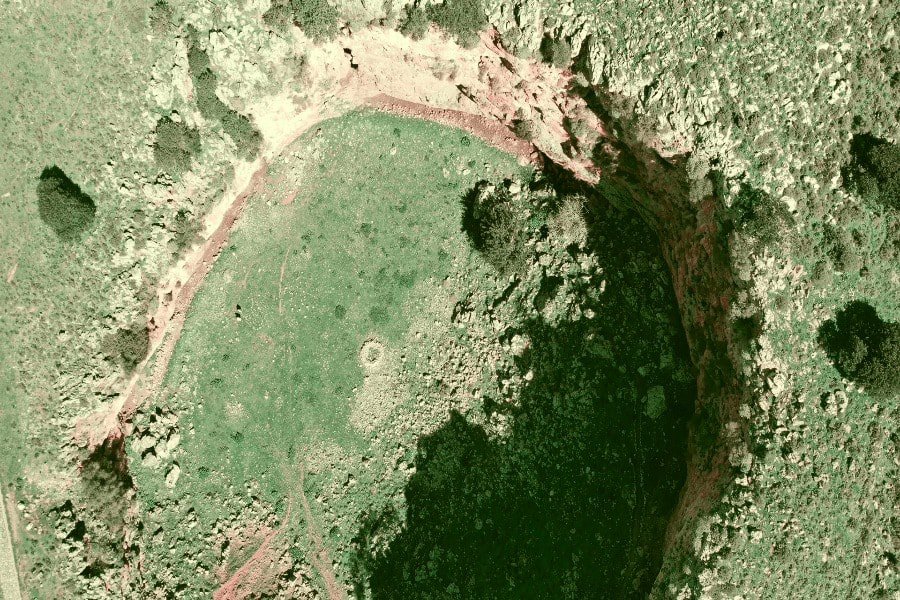When it comes to exploring the Earth, geologists are always ready for the task. But what tools do geologists use to accomplish this exciting task? Here is an essential and helpful list of tools that geologists use on their journey. This list is to name a few tools, and of course, after a while, you will find that you will need more tools.
| Basic Tool List for Geologists |
|---|
| GPS |
| Drone |
| Hand Lens |
| Photo Camera |
| Grain Size Card |
| Safety Goggles |
| Backpack |
| Ziploc Bag |
| Tape Measure |
| Geology Hammer |
| Chisel |
| Geology Notebook (Weather Resistant) |
| Hard Hat |
| Field Hat |
| Sharpie |
| Magnetic Pen |
| Magnetic Susceptibility Meter |
| Brunton Compass |
| Pocket Knife |
| Clipboard (Weather Resistant) |
Related: Tool to measure temperature, Tool to measure indoor humidity
What Does a Geologist Do?
Earth science is a subject that most of us study in school, but many people become carriers of it; they are called geologists. Geologists’ work affects all of us, from finding mineral deposits to predicting weather conditions that help us better understand our world. The Earth is so big that geologists specialize in different areas, some studying fossils, others investigating volcanoes trying to predict when they will go off.
Marine geologists work with explorers to observe the ocean floor; even the construction industry has geologists to help build dams and tunnels. Advances in technology are making geologists more interesting every day; for example, 3D imaging is helping to find new sources of oil.
What Are Some Examples of Geology?
The geology consists of three main categories, as follows:
- Earth Processes: These would be things like flooding, earthquakes, or other natural hazards.
- Earth Materials: These would be natural resources and metals in the Earth, such as oil or natural gas.
- Earth History: Geologists have often studied the Earth for millions of years to understand what is happening now and even more to predict the future.
Why Do Geologists Study Earth’s Processes?
Geologists study Earth’s processes to evaluate natural hazards. They often assess floods, earthquakes, or even volcanic eruptions. Using the passing events on these natural hazards to predict the future and hopefully reduce suffering or any physical damage from these biological processes. For example, in the flood of Hurricane Katrina in 2005, geologists often gathered information about past floods. They used it to create maps that show areas of high to low levels of potential future flooding. Designers or engineers often use these flood maps when developing infrastructure in an area, so a geologist would play a critical role in developing these maps.
Geologists assess not only natural hazards but also monitor the human impact on the environment. They have played an essential role in assessing the damage caused by human impact and its relation to the environment. And Finding methods of remediation, an example of which would be the location of large construction projects.
Why Do Geologists Study Earth’s Materials?
A geologist is often involved in searching for natural resources, including Water, fossil fuels, and other metals in the soil. Frequently geologists conduct studies to locate rocks with valuable metals, oil, natural gas, and groundwater. They also develop resources to find ways to extract these natural resources from the Earth. Geologists may also, for example, plan a mine and find ways to get some precious metal from the Earth.
Why Do Geologists Study Earth’s History?
Geologists research the history of the Earth and use clues from the past to understand changes over time. One of the primary goals of doing so and what is very popular now is understanding climate change better. They do this to stop further any damage we have already had to the Earth in our environment. In a sense, geologists who monitor climate change act as consultants to government agencies and advise them on climate change and other energy initiatives.
What Assignments Do Geologists Perform?
Now that we understand the big picture of what a geologist does, we can break it down and see more of the micro-level tasks that a geologist could do. It would be more on a day-to-day basis than you would see a geologist doing. Geologists plan and perform some tasks that include:
- Field studies.
- Analyze data: Aerial photographs while logs and rap sink samples were collected in the field to locate natural resource deposits.
- Test the data collected in the area.
- Construct maps and geological charts.
- Prepare scientific reports.
This is just an example and gives you a good idea of what geologists do on a day-to-day basis. There are many other things that geologists do. Geologists could do more assignments day-to-day on another micro-level.
Where Do Geologists Work?
Now that we understand better what a geologist does, I think it’s important to understand the environment in which geologists work. The first thing is that geologists can work both inside and outside. They can work out in the field, collecting data by giving field samples. They can work inside; this can include writing reports like the IPCC report, or they can have a combination of both.
They might collect data from the field and then go back to an internal laboratory and analyze and test that data. There are a variety of sectors in which geologists work. Geologists could work in the industrial sector. They could work for a private company that might work in the government for some government agency like a National Park Ranger, the Department of the Interior, or all kinds of things for the government. And finally, geologists can work in academia, so this could be research or teaching in a university.
What Are the Geologists’ Sub Specialties?
Geology and geologists work in this vast and wide range of areas. To focus, we have many geologists in these various subspecialties. I want to highlight some of those subspecialties as follows:
- Geochemistry: This is a geologist who studies the composition of groundwater elements using both physical and organic chemistry.
- Petroleum: There are petroleum geologists. They explore the Earth for oil or gas deposits, often working in the mining industry.
- Seismologist: It is geology that studies earthquakes and related phenomena.
- Paleontologist: This would be a geologist who studies fossils in rocks.
- Planetary: There are even planetary geologists, so they focus not only on the Earth but also on the moons of other planets and the solar system’s origin.
- Engineering: These would be geologists who apply geology to the field of construction and could help construct bridges or dams, or other types of infrastructure that often deal with the foundation or the site where a piece of infrastructure is placed.
How Much Do Geologists Earn?
The average salary for geologists is relatively high. Geologists average about $87,000 a year in salary. 10% of geologists approach $125,000 a year. These geologists would work in mining quarrying, and other types of natural resource extraction. Geologists’ primary education is a bachelor’s degree; however, no previous field experience is typically required for entry-level jobs.
In 2016 there were 32,000 geologists employed. The projected number of jobs in 2026 is 36,500, representing an increase of about 14% since 2016. According to the Bureau of Labor data, this gives you a point of reference; this 14% increase is a much more rapid growth rate than the national average of jobs.

